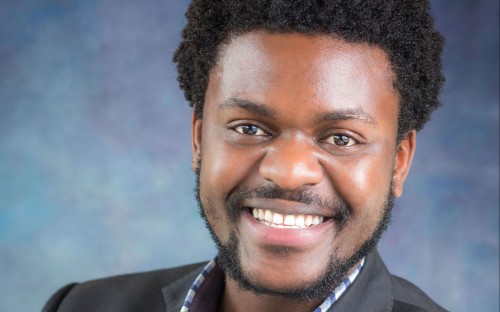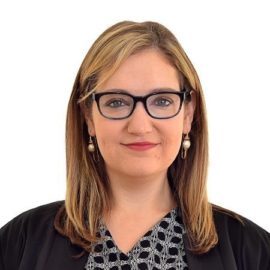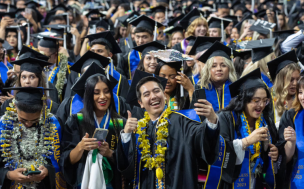Many applicants don’t have the same access to information or support as their peers from other regions. It takes extra grit and determination to get through the admissions process.
BusinessBecause caught up with three recent MBA grads to get their advice for candidates applying to international business schools from Africa.
Atherton Mutombwera, University of Oxford Saïd Business School
Since he was very young, Zimbabwean Atherton Mutombwera knew he wanted to cure illness. When Atherton played as a child, he used to pretend he’d found a cure for HIV.
After his MSc in Nanobiomedicine, he knew he’d need a new skillset to start his business: getting diagnostic kits for diseases like Ebola, at a low cost, to the people who need them most. Atherton’s dream–to radically change healthcare in Africa‒led him to apply to Oxford.
"Do people like me get into Oxford?" Atherton would ask himself during the application. He had his doubts. "Speaking to recruiters helps you realize this is a real possibility," he says.
"Having come to Oxford, and sitting in class, I realized that my voice matters. We see things very differently. Where you come from matters: you can add to the conversation."
Atherton wants applicants to know that you shouldn’t try for typical ‘good’ answers to admissions essays. Business schools want diversity and difference. "Be yourself and show that you are different. The world is curious about your story—your insights, your values, your culture is valuable. What we think is putting us down might actually be an advantage."
Benjamin Fernandes, Stanford Graduate School of Business
When Benjamin Fernandes’ undergrad professor suggested he do an MBA—at either Stanford or Harvard no less—he didn’t even know what an MBA was. He went home to Google it.
Based in Tanzania, he proceeded to learn about the MBA online. "I’d find students on the website and treat them like celebrities, looking them up on Instagram," he recalls. "I was winging everything: I didn’t even know you could email the school to ask questions. I thought they’d never reply."
Benjamin was the youngest person in his MBA cohort at Stanford, a Social Innovation Fellow and an Africa MBA Fellow. When he applied though, he thought he was trying his luck: "My mentality was that I had a 0.1% chance of getting in, and even if I got in, I couldn’t afford to go." When he found out he got in with a full scholarship he burst into tears.
One of the issues Benjamin faced was trying to explain context to admissions officers a world away. Benjamin worked at one of the largest TV providers in Tanzania, but the company didn’t even have an active website. He was worried the admissions team would think he was making it up.
Another obstacle was the GMAT. He had studied for three months but he questioned whether his score would be good enough. To make matters worse there was a power cut at the testing center the day of his GMAT (the day before his application to Stanford was due) and he had to wait nervously for the power to return. He wished he had known that there is more to an application than the GMAT score.
Looking back, Benjamin is amazed that he was accepted. He had little confidence and no idea how to approach referrers in a culture where mentorship is not necessarily valued. What he did have was a compelling story and amazing potential. He has since completed a post-graduate qualification in rethinking financial inclusion at the Harvard Kennedy School and is working on building a financial institution called NALA, to drive forward digital financial services in East Africa.
Naomi Thompson, Hult International Business School
Naomi Thompson was the first in her family of seven to go to university. She grew up in a rural village in South Africa during the Apartheid era. Against all odds, she was accepted into law school in 1997, and admitted in the High Court of South Africa as an attorney in 2003.
Naomi was used to beating the odds to achieve her dreams. "If we have a vision for our lives and work hard with determination, nothing can stop us from achieving that dream," she says.
As for most candidates applying from the continent, unfavorable exchange rates were an obstacle. But when Naomi realized she wouldn't be able to fund her MBA at Hult, she did not give up.
"I drafted a proposal. I looked at myself as a business venture and drafted a business case – I outlined the money I had raised, and my partial scholarship. I made the case for a business to invest in me."
Based on her proposal, her employer gave her the equivalent of the tuition fees for a local MBA. When Naomi ran out of money to support herself in the last semester of her MBA, she turned to crowdfunding to make it through.
In the lead up to her application, Naomi spent a lot of time researching different options and the admissions process. She advises aspiring MBAs to go to as many admissions events as they can to "get into the heads of the recruitment teams".
Applicants should first narrow down the criteria that are important to them and then go ask questions. South Africa doesn’t necessarily have a culture of Alumni networks, so Naomi was surprised by how much support alumni offered.
"One of the biggest revelations for me," says Naomi, "was that I just had to ask; ask for help; ask for support. I even asked if my partial scholarship could be increased, and it was. The worst someone can say is no."
RECAPTHA :
ed
c1
4e
ab










